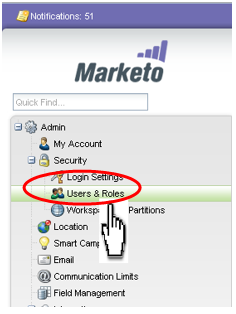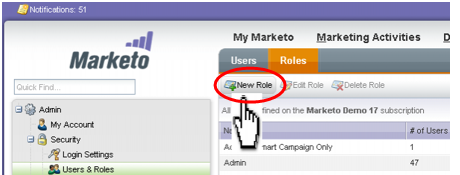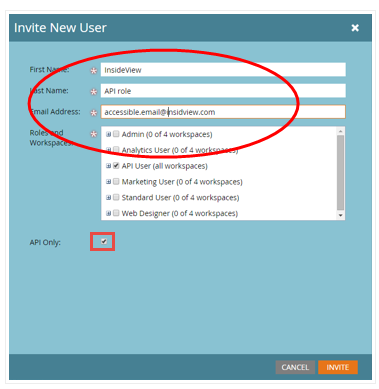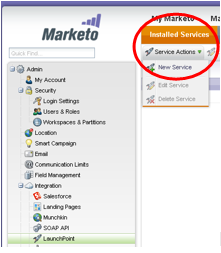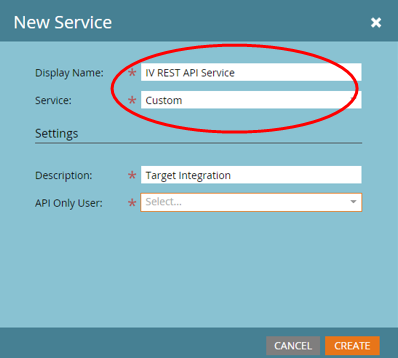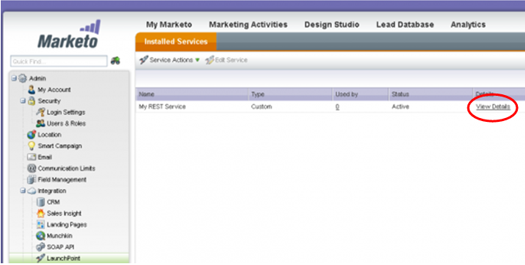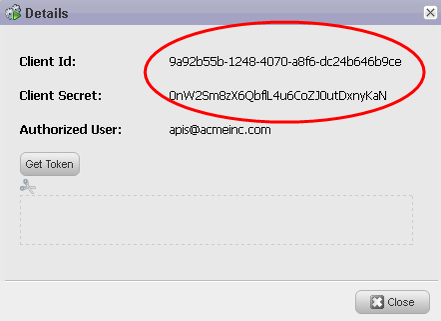InsideView Enrich uses the REST APIs to connect with Marketo application. You must have admin access for setting up Rest API role and user.
Refer to the Marketo Custom Service guide: http://developers.marketo.com/documentation/rest/custom-service/.
| Step | Description | Details |
|---|---|---|
| 1 | Login to Marketo | Login to your Marketo application. |
| 2 | Navigate to Admin Panel | In the upper-right corner of the page, click Admin. |
| 3 | Launch User & Roles page |
On the left panel, click the Users & Roles node.
|
| 4 | Launch New Role page |
In the Users and Roles pane, click New Role.
|
| 5 | Enter API Role name | In the Create New Role page, enter the API Role Name.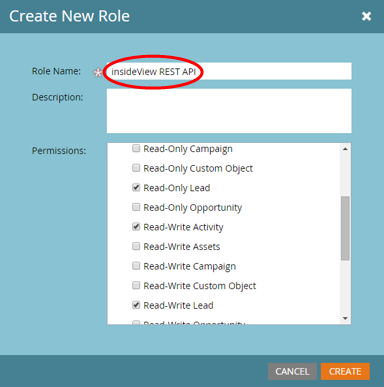
|
| 6 | Select Permissions | Select the following permissions from the Access API menu:
|
| 7 | Create API Role | Click Create. |
| 8 | Create an API Only |
The next step is to create an API only user and associate it with the API role that you just created. You can do so by checking the API-Only user check box at the time of user creation, and check API user in “roles and workspaces”. Although an email invite will not be sent out, you should use an email address that is accessible.
|
| 9 | Create a custom application |
A Custom service is required to uniquely identify your client application. To create a custom service, go to the Admin>LaunchPoint page and create a new service as illustrated below:
|
| 10 | Pick a web service name |
|
| 11 | Create Service |
Click Create. Once the service is created, you will see a new line item in the installed services. There are two items that are required to validate the Marketo instance: Client Id and Client Secret. |
| 12 | View Client Id and Secret |
Click the View Details link on the grid to get the Client Id and Client Secret.
|
| 13 | Copy Client ID and Secret |
Copy the Client ID and Client Secret in a notepad or a text document. |
Retrieving REST API URLs
Copy the Endpoint and Identity REST API URLs from Admin Navigation Pane. These URLs are found in the web services section of the Admin Navigation pane (Admin->Web Services). The URLs which are required are found in the REST API region as illustrated below:
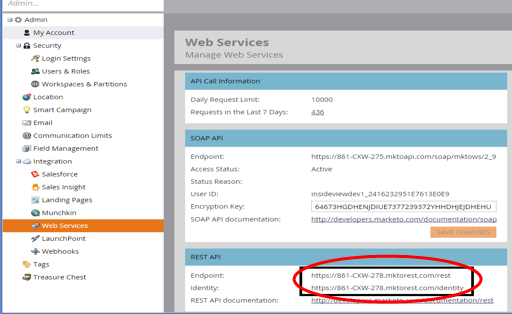
Copy each URL and store in the same notepad or text document where Client Id, and Client Secret are saved.
